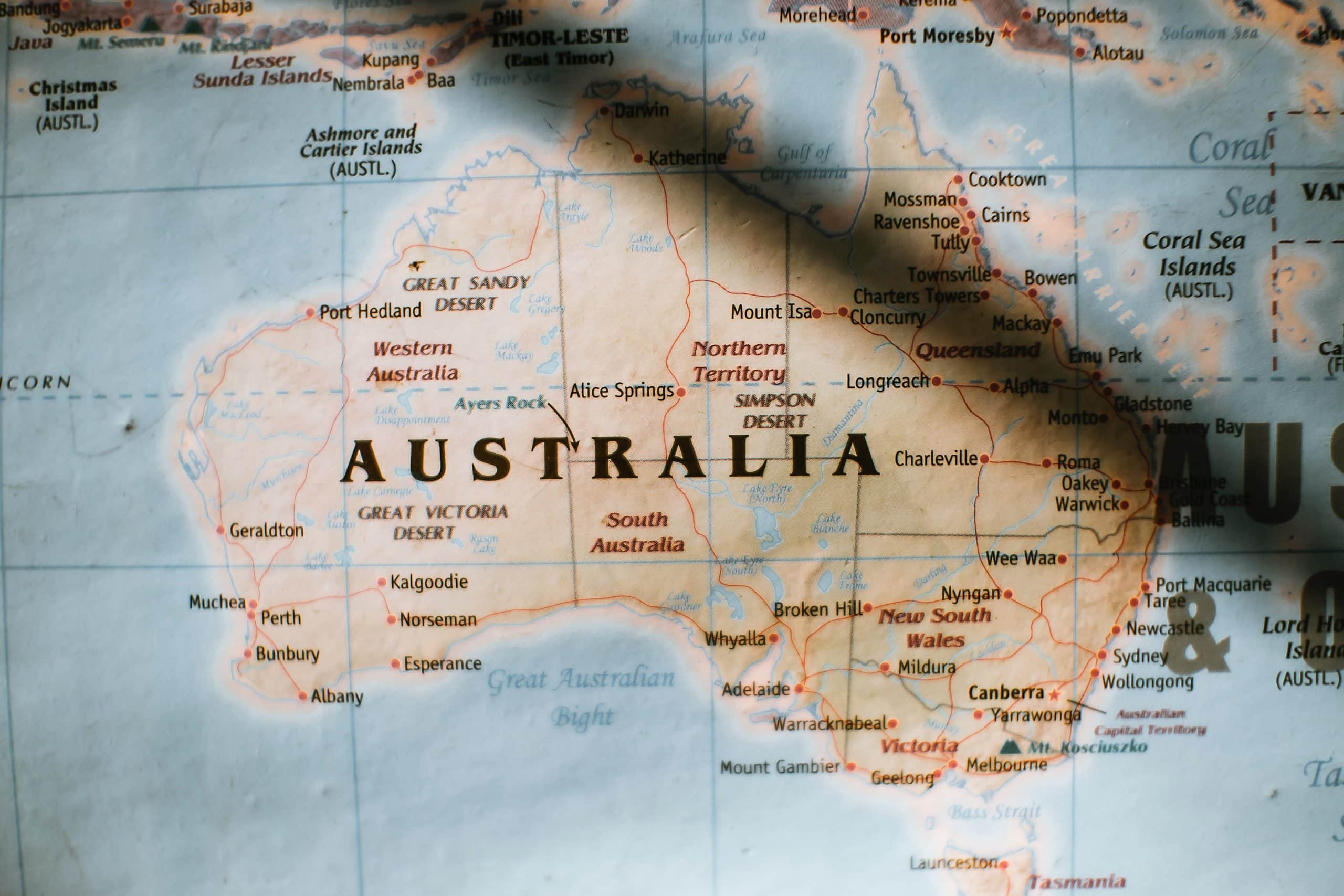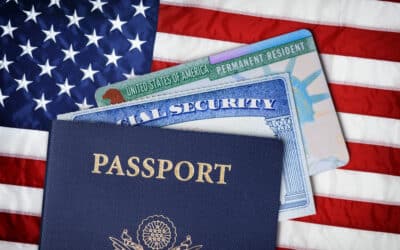To the rest of the world, the United States has a gun problem. Mass shootings, especially inside of schools, are national tragedies in the USA. When a non-American asks the question “Why a private citizen needs an ‘assault rifle’?” the pro-gun response is rarely helpful. Non-Americans assume it’s the “gun crazy” culture of the U.S. and to Americans, the rest of the world isn’t free because without a Second Amendment liberty is non-existent. Misunderstandings persist and innocent lives are lost while governments use tragedy and fear to grow.
“Unarmed Australia”
“Australian civilians now own more than 3.5 million registered firearms, an average of four for each licensed gun owner…The proportion of Australians who hold a gun licence has fallen by 48 percent since 1997. The proportion of Australian households with a firearm has fallen by 75 percent in recent decades…imports of modern firearms for private owners fluctuate between 65,000 and 116,000 each year…private gun owners also hold an estimated 260,000 illegal firearms.”- University of Sydney, April 2021
Australia has had some terrible mass murders involving firearms, especially semi-automatic rifles. The government’s reaction was to “buy” semi-automatics and shotguns, denying citizens the right to own except with stringent conditions. Since then stranger-related gun murders have decreased in Australia. In the minds of many Australians, a solution was found. As far as they’re concerned, the age of the mass killer with a semi-automatic rifle is over.
The idea that Australia has disarmed its citizens is a myth. An estimated 868,000 Australians hold a firearm licence. Firearm licences are legislated by each Australian state. There are a range of firearm licence types across the various states, covering firearm dealers, collectors, recreational shooters and hunters, pest controllers, and security. While Australians tends to romanticize the rugged outlaw bushranger and celebrate the ANZAC legend, they don’t want returned servicemen with mental health issues having access to any type of firearm. Most Australians have more in common with the suit wearing New Yorkers in “Crocodile Dundee” than Mick Dundee himself, and his use of firearms in those films is a key component of that disconnect (as is it for much of the world).
In 1996, a mass shooting involving the use of “military-style” firearms in Port Arthur, Tasmania, left 35 dead and 18 injured. Tasmania had few restrictions on firearms at the time—as did most Australian states—and the shooter who had a history of mental health issues had legally purchased the firearms. The murders led to a National Firearms Agreement between the states and commonwealth, and a firearm buyback scheme and amnesty that paid over $300 million to owners in exchange for their firearms. Most Australians then and now see strict gun laws as a good thing, with many calling for even tighter controls after each publicized gun death (including those overseas).
During the peak of the COVID policies, Australian state premiers wielded emergency powers that locked down their dominions. The police were instrumental in this “for your health” tyranny. It occurred in other nations, and in parts of the United States but it was especially apparent in Australia (many incorrectly assume that Australia is a truly free nation). “Free” is relative, and Australia had a history of paternal governance even before the laws passed after the 1996 Port Arthur massacre. It’s assumed by some that an unarmed populace had no choice but to suffer government COVID-related tyranny.
“Australia lost its freedom when they gave up their guns” is the meme that emerges. Most Australians never had “their guns” to fight the government with or unbound freedom in the first place. Australian culture is often loyal to its government. Being armed or not made very little difference to an already obedient population. Into the twentieth century Aboriginal Australians were hunted and subjugated by firearm-owning Aussies, both private and serving the crown. Very few if any firearm owners fought for their protection. It’s a history most Australians disregard and one the few pro-gun Australians prefer to forget.
Guns vs Big Government
It’s easy to assume that armed citizens are a check against tyranny, an insurance against government overreach. Have large amounts of privately owned firearms in the United States stopped the world’s biggest government from emerging? Has the freedom loving citizenry with their arms stood up to the government when it came to mass surveillance, increased taxation, over regulation, vice prohibitions, censorship, and the many wars abroad, some of which required conscription to fight? If firearms have not stopped the rise of intrusive government, then what will? Did armed citizens defend those in Waco or Ruby Ridge? Or like Australia and most of the world, is it the culture to support government regardless?
For the rest of the world, it’s getting harder to convince not merely the government but the wider community of the benefits of private firearm ownership when the nation that has the highest number of armed citizens has numerous high profile mass shootings. The politics that arise after each murder is vile; those who see conspiracies in all things accuse the grieving families of being actors and assume it’s a government plot. Just as others blame sexuality, ideology, white supremacy and so on. The cult of celebrity that arises out of the murders can go on to inspire other killers. Talking over murdered human beings to gain political points or to enhance one’s social media presence has tragically become routine.
Perhaps that’s just it, the routine of abstained agency. “What nation will the United States invade next?” or “What school next?” asks an indifferent world, helpless or complicit. As U.S. policy makers seek gun control, they will simultaneously send weapons into warzones without any concern where they end up and who will use them. The U.S. government knowingly supplies violent drug cartels and terrorists. The pious Australian government, smug and proud of its low gun death numbers, also arms horrible regimes while frequently crossing seas to kill in the name of foreign policy (empire).
Prohibition
Collectivist paternalism is the basis for all prohibitions, whether against drugs, pornography or guns. Those who tend to favor firearm ownership seem to support outlawing other items and vice versa. Since the mid-1990s, the United States has had countless mass murders involving firearms. The pro-gun argument will point out that the murderers pick soft targets and when an armed citizen shoots back, they are usually stopped. Or that the intent to kill will be enough for a horrible human being to seek out the weapons they need. This does not change the reactionary instinct for those who wish to prevent such weapons being available. For the distant outsider the constant remains that a deranged human being is able to access a mass killing weapon with relative ease.
One’s own moral and ideological bias will guide their “solution.” When it comes to weapons of mass murder the Roman gladius was capable of genocide and in the last decade of the twentieth century so too was the machete. Violent individuals and mobs are capable of large amounts of death and disarming their victims only serves to help them in their ambitions. Disarming minorities before the systemic racism of the police or preventing women the access to self defense weapons to protect them from predatory men are ignored when the simple solution of prohibition is sought.
The recent police incompetence and cowardice demonstrated in the Texas school shooting, where it was reported law enforcement rescued their own children and then spent 70 or so minutes denying other parents access to enter the school to save their children, reveal the inadequacy of the monopoly charged with protection. To many however the problem is not the ineptitude of the police or the vulnerability of the innocent but the reality that a person was able to get a weapon to kill with. This is the glaring bias that many see in such a situation, the need to trust and rely upon the police so absolute that any ineptitude or malice is overlooked.
The examples include rooftop Koreans in 1992 Los Angeles defending themselves and their property from violent mobs, abandoned by the government that helped to spark the riots in the first place. Regardless of the importance of private firearms in this incident, the government retained power and grew regardless, and all at the expense of individuals and minority groups. Riots have roared on since with property and individuals attacked. Armed or not, government has grown.
Unfortunately there are no bipartisan solutions to stop the shootings. Soul searching and self-reflection are as helpful as thoughts and prayers. The problem is terrible and the politicking does not help. As a distant outsider who does support the individual’s right to bear arms, the common arguments and myths of foreign gun control don’t help. It does not convince those of us who live in a culture that has few mass shootings, especially not in schools. It also doesn’t help to proclaim the existence of guns in the hands of the citizen as being a torch for liberty. The USA is not that free and its government does not champion liberty. It certainly hasn’t stopped the U.S. from becoming the largest government the world has ever known. History has shown that violent revolutionaries lead to regimes of more government with often worse traits each time, whether immediately or growing over time (the 1776 American experiment included).
“Power Comes from the Barrel of a Gun”
For the outsider the theme is that Americans love their guns. And they love to kill; the police murder dogs and children with regularity, the U.S. military conducts itself with aggression the world over. Non-Americans see this as the exceptionalism, the violence, the killing, the imperialism. It’s not unique to the United States but for many it seems that way. Is the lack of self-control that is expressed by policy makers, its armed agents and the citizenry the culture the rest of the world should resent and reject? Or is it just poor examples of an otherwise free and peaceful nation?
Individuals who would murder the innocent are the threat, whether they do it because of a deranged impulse to hurt and kill or in the paid service of the state. If a society is filled with a majority who can justify the mass murder of strangers abroad, then perhaps some individuals will embrace such thinking when it comes to their own desires. The example has been set by the highest authority of the land that violence and killing is the answer. Power, authority, and righteousness are validated by the ability to kill. The guilt of those executed is decided by the killers and any unintended are rationalized as necessity. In the case of the individual murderer, the blood of their victims elevates whatever manifesto they invented and for organizations it validates, deters, and punishes.
Collectivist thinking determines that all are responsible for the actions of a few; possession of firearms can decide guilt and become linked to intent. This is both ancient and medieval, a hallmark of puritan elites who with a mind for morality and collective safety-security punish with absolute solutions. The unimaginative and easy response of banning all items is appealing and is assumed. And it seems for many that when in place mass shootings are fewer, stranger-related killings less, so in their mind this in itself is an answer. Human rights are secondary to safety. And some governments in turn can take credit for a society that does not birth as many killers, for now.
As an individual who lives in Australia and who is for gun rights, I can only watch on with concern and compassion, unwilling to propose a centrally planned solution. Blame is easily sought. It burns everywhere but should be pinpointed to those who are directly responsible. The victims outside of their family and community become statistics. It’s heartbreaking. If it’s not a gun problem then it’s a problem for those who feel in control because they have a gun. For now most Aussies don’t fear a shooter walking into a school but that does not mean it can’t or won’t happen. If it does, then it likely will be an exception. Perhaps that in itself is exceptionalism.

































